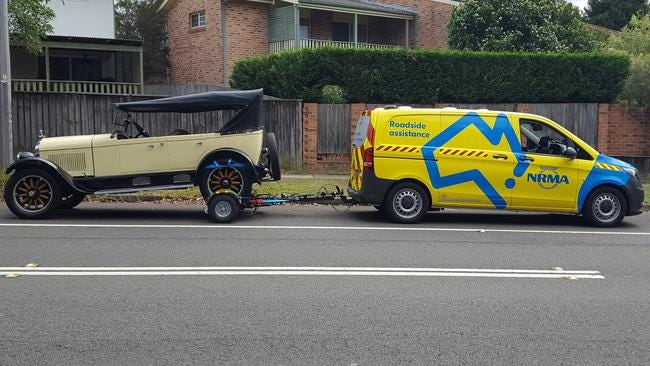Sydney’s motorists are still suffering breakdowns despite the lockdown | SMH
Andrew Taylor of the Sydney Morning Herald writes "Sydney’s motorists are still suffering breakdowns despite the lockdown" about a relative spike in NRMA calls (calls have not fallen as much as traffic). My quote:
David Levinson, professor of transport engineering at the University of Sydney, said an increase in battery call-outs could indicate less driving, as a battery will drain more if a car is unused, rather than being recharged daily.
“People may prefer to call NRMA than ask their neighbours for a battery jump start in these conditions, presuming professionals are more likely to be vaccinated,” he said.
“Even more speculatively, additional NRMA calls may be made by people who are especially lonely for any kind of in-person interaction during lockdown, and otherwise would not have made a call.”
Calls have fallen, but not as much as traffic has (according to the article numbers: 17.5% NRMA vs. 50% traffic compared with 2019), but I am not sure that is surprising.
1. NRMA may be substituting for people traveling to service stations (servos, or whatever the local Australian term is for car repair). Cars that are not properly maintained are more likely to fail.
2. The people who belong to NRMA are not the same as the general population. My guess is they have higher than average income, and thus be more likely to be office workers (and thus be more likely to be working from home during this period), but you would have to ask them for the socio-economics and demographic makeup of their membership. But they also may be located disproportionately in areas that are not as subject to as stringent a lockdown as non NRMA members are (i.e. their membership rate in hard lockdown areas is lower than average).
3. An increase in battery call outs could be indicative of less driving, as the battery will drain more if the car is unused, rather than being recharged daily. (This is also consistent with increased calls from home.) After not starting the car for a month, people find the battery is dead.
4. Speculatively, people may prefer to call NRMA than ask their neighbours for a battery jump start in these conditions, presuming professionals are more likely to be vaccinated.
5. Even more speculatively, additional NRMA calls may be made by people who are especially lonely for any kind of in-person interaction during lockdown, and otherwise would not have made a call.


